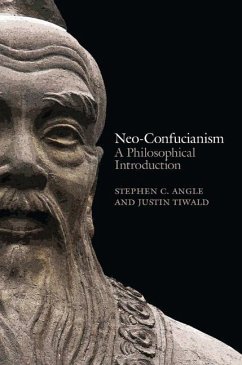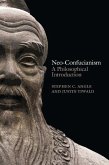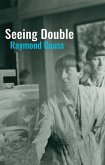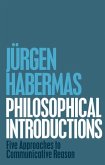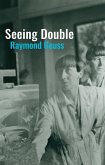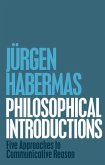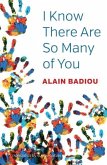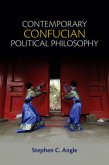Neo-Confucianism is a philosophically sophisticated tradition weaving classical Confucianism together with themes from Buddhism and Daoism. It began in China around the eleventh century CE, played a leading role in East Asian cultures over the last millennium, and has had a profound influence on modern Chinese society.
Based on the latest scholarship but presented in accessible language, Neo-Confucianism: A Philosophical Introduction is organized around themes that are central in Neo-Confucian philosophy, including the structure of the cosmos, human nature, ways of knowing, personal cultivation, and approaches to governance. The authors thus accomplish two things at once: they present the Neo-Confucians in their own, distinctive terms; and they enable contemporary readers to grasp what is at stake in the great Neo-Confucian debates.
This novel structure gives both students and scholars in philosophy, religion, history, and cultural studies a new window into one ofthe world's most important philosophical traditions.
Hinweis: Dieser Artikel kann nur an eine deutsche Lieferadresse ausgeliefert werden.
Based on the latest scholarship but presented in accessible language, Neo-Confucianism: A Philosophical Introduction is organized around themes that are central in Neo-Confucian philosophy, including the structure of the cosmos, human nature, ways of knowing, personal cultivation, and approaches to governance. The authors thus accomplish two things at once: they present the Neo-Confucians in their own, distinctive terms; and they enable contemporary readers to grasp what is at stake in the great Neo-Confucian debates.
This novel structure gives both students and scholars in philosophy, religion, history, and cultural studies a new window into one ofthe world's most important philosophical traditions.
Hinweis: Dieser Artikel kann nur an eine deutsche Lieferadresse ausgeliefert werden.
"A lucid, accessible, and highly readable introduction to the world of Neo-Confucian philosophy. The authors succeed admirably in unpacking what the Neo-Confucian thinkers meant and not just surveying what they said, and in doing so Angle and Tiwald encourage the reader to engage with Neo-Confucian ideas."
John Makeham, Chair and Director, China Studies Research Centre, La Trobe University
"This landmark work on Neo-Confucianism provides a tremendously helpful survey of the conceptual terrain that the thinkers in this tradition negotiated in their different ways and brings many more important thinkers onto the scene in dialogue with better-known figures such as the Cheng brothers, Zhu Xi and Wang Yangming."
David B. Wong, Beischer Professor of Philosophy, Duke University
John Makeham, Chair and Director, China Studies Research Centre, La Trobe University
"This landmark work on Neo-Confucianism provides a tremendously helpful survey of the conceptual terrain that the thinkers in this tradition negotiated in their different ways and brings many more important thinkers onto the scene in dialogue with better-known figures such as the Cheng brothers, Zhu Xi and Wang Yangming."
David B. Wong, Beischer Professor of Philosophy, Duke University

